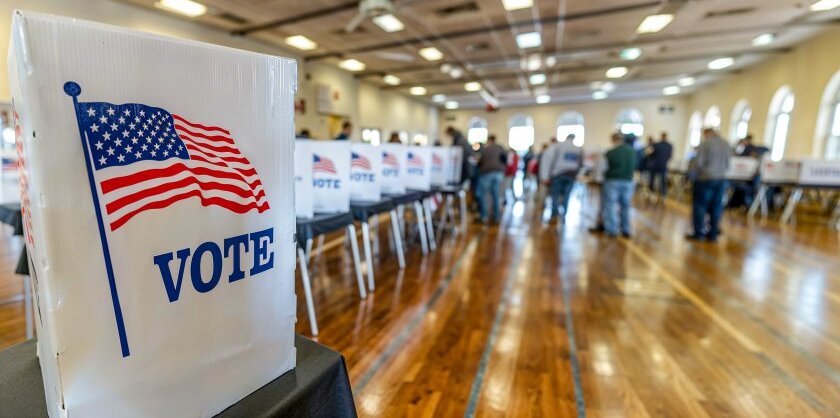What’s happened in Wyoming illustrates how closed primary elections shut too many voters out of the electoral process, intensify political polarization and raise important questions about funding these elections.
Voters in five states rejected the voting system, while D.C. voters approved it.
The political landscape has shifted dramatically in Vermont. Nationally, the election showed that partisanship matters most but active campaigning still makes a difference.
Other states, including Nevada, are deleting references to slavery in their constitutions and banning forced prison labor. California voters rejected that path when they turned down Prop. 6.
A half-dozen states rejected ranked-choice voting, although Washington, D.C., approved a measure. School choice fared poorly, while increasing criminal penalties proved to be popular.
Despite the fact that more than 76 million Americans had already voted in this year’s election as of Sunday, a patchwork of vote-counting rules, particularly in battleground states, will likely delay Election Night results.
A new task force made up of several county law enforcement agencies is tasked with keeping voters safe.
State Sen. Rob Sampson’s concerns about the state’s election security have risen again after a noncitizen was allowed to register to vote in Bridgeport. But election officials across the state assure election integrity.
It’s an emerging form of grassroots activism that could have a big impact, from educating voters to calling out political shenanigans.
Voters in Colorado, Kentucky and Nebraska have school choice questions on the November ballot.
The California city was an early adopter of the election format but after clerical errors in the general election two years ago, local residents are ready to ditch the method despite its growing popularity nationwide.
Despite some local officials’ claims that they will not certify election results, there are ample safeguards to ensure that ballots are tabulated accurately and election results are certified in a timely manner.
The Florida Department of Health issued a letter to local TV stations last week, demanding that they remove ads supporting the state’s abortion amendment within 24 hours or the department would seek criminal charges.
Proposition 33 would allow cities to limit rent increases. Some economists doubt that’s a good idea.
Voting reform advocates say ranked-choice voting will give voters more voice in their elections. But clerks of small counties worry that any advantages will be undermined by more cost and confusion.
Voters in eight states will decide whether to bar municipalities from allowing noncitizens to vote. Few noncitizens cast illegal votes, leading critics to claim the issue is being hyped for political reasons.
Most Read
















